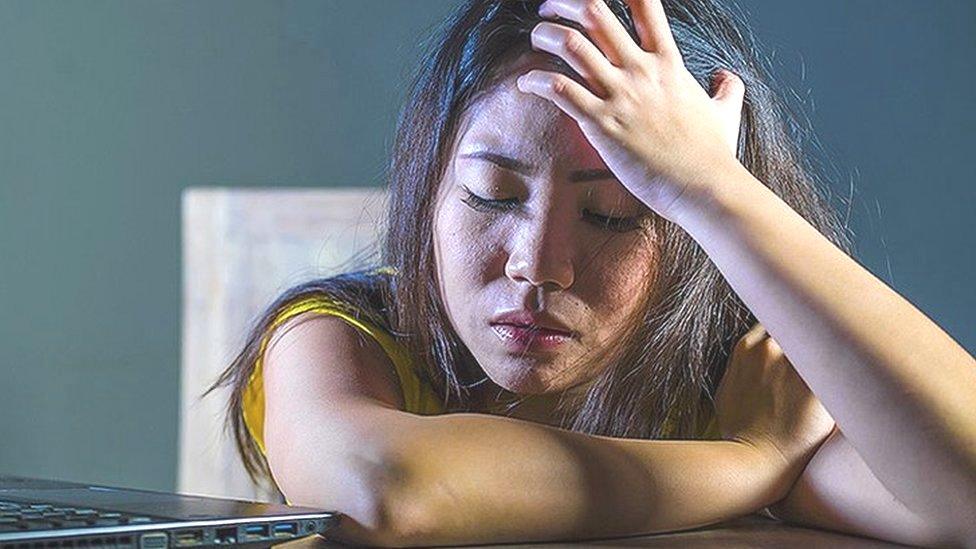TikTok: When my videos go viral, online trolling gets worse
- Published
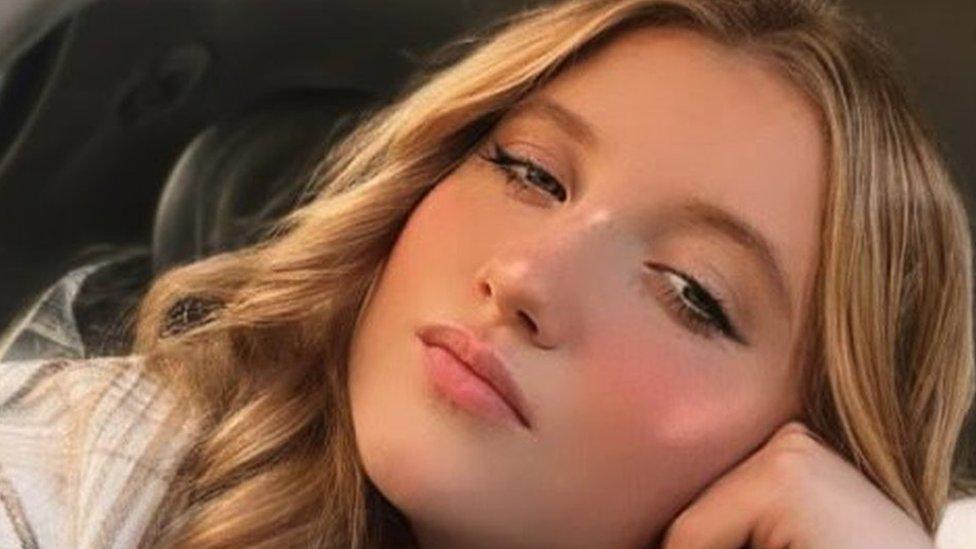
Student Hannah Milton wants to be a full-time influencer but has received abuse for creating content online
She has 1.6m followers watching her dance videos and comedy sketches on TikTok, but Hannah Milton says the online abuse she receives makes her feel lonely.
Hannah, a 21-year-old university student, said she "didn't like to tell anyone" about the hate she can receive.
She creates her TikTok and Instagram videos in her bedroom and said that's "the way she prefers it".
But she said: "When my videos go viral, that's when trolling is at its worst".
"A lot of people say it doesn't affect you but I don't believe that," added Hannah, who started creating online content in 2020 to ease the boredom of lockdown while at home in south Wales.
"I love acting and since I couldn't go because of Covid, I decided to do it at home."
"TikTok was like a form of entertainment," she added.
Since then her following has grown massively and while also doing sketches, dances and makeup routines, Hannah has also done live streams on TikTok - sometimes for up to eight hours.
Top advice on avoiding mental burnout on TikTok
"You have to constantly talk, which isn't a problem for me," she said.
"It's when your feet start to hurt and you rock side to side. But I absolutely love it."
The digital marketing Cardiff Metropolitan University student said her studies and passion for cheerleading allowed her to forget about content creation and any online abuse for periods of time.
Hannah remembered "looking up to YouTubers" as a teenager and said she was thrilled to "be like them".
But she said young people were not always prepared for the first hit of social media fame, adding that her strong relationship with her mum had helped her to "get it off her chest to deal with" the trolling.
"People have the outlook that content creation is an easy job, but it's very draining," said Hannah.
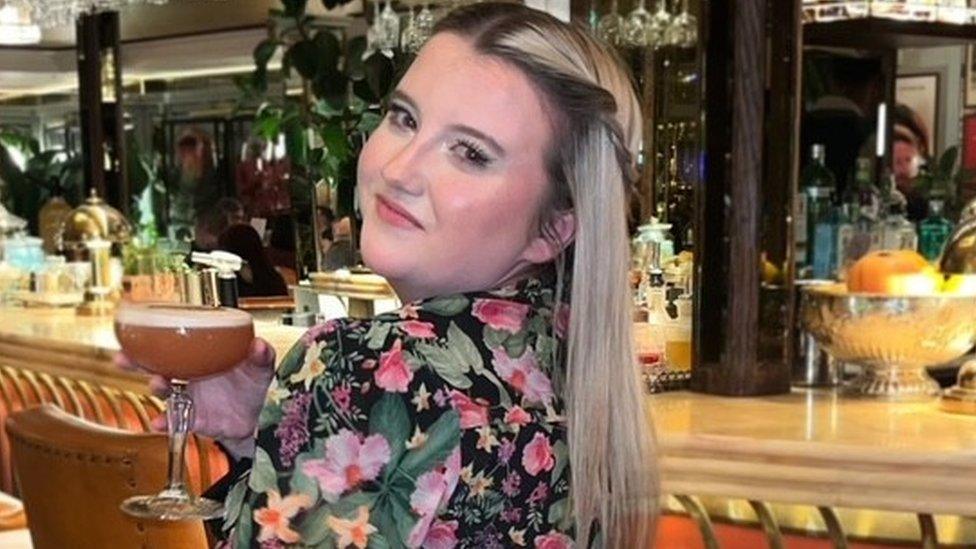
Hannah Milton balances university studies and daily online content creation while trying to make time for herself
"In reality you have to deal with the hate, find the motivation you need, and the time and effort it takes to be a creator."
'Young creators are easy to exploit'
One poll estimated that out of 5,000 people surveyed across the UK, more than 50% considered themselves a content creator, such as a podcaster, blogger or influencer.
Online content creator Abi Butcher said while she loved her job, it "comes with its challenges".
She founded an influencer agency to help content creators, like Hannah.
"You're in the public eye a lot, people are always watching over you and there's a lot of pressure that comes with it," said Abi, Hannah's manager and the owner of Content Creators.
"It can be very difficult at times but it's also very rewarding."
Abi said success at a young age could make influencers "easy to exploit", and said she advises her influencers to stop creating content if begins to affect their mental wellbeing.
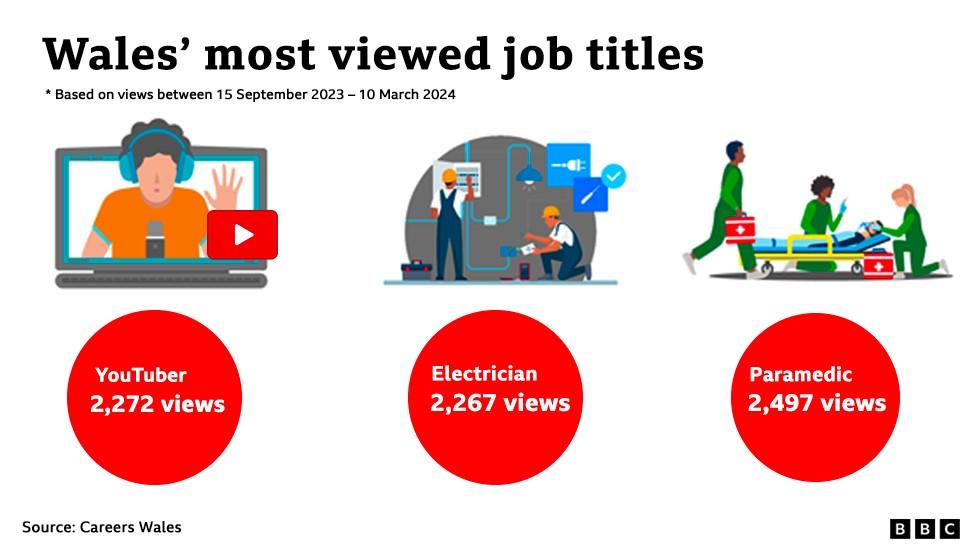
For the first time, being a YouTuber is in the top 15 most viewed job titles on their website for the first time - ahead of electrician
"I would never recommend someone staying in something that they don't enjoy," she said.
Now a leading UK psychologist is researching the pressures of being a social media content creator.
"The comments they receive from others, the natural pressure of working on social media, anything that relates to the experience of doing that job on social media... there needs to be more research to understand that nuance of using social media as a job," said Dr Margarita Panayiotou of Manchester University.
"What that means in terms of their mental health, in terms of their job, is something that I don't think has been looked at before."

DARE TO DANCE: Can Amy Dowden get these rookie dancers ready for their surprise routine?
INSEPARABLE SISTERS: The seven-year-old conjoined twins who defied all odds

- Published25 March 2024
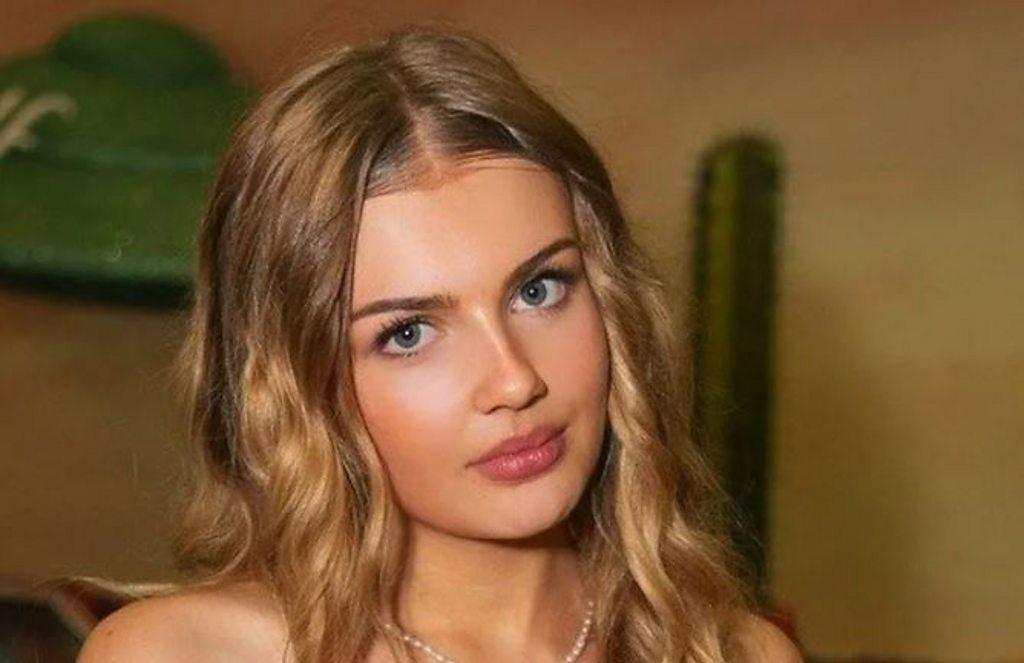
- Published18 September 2022
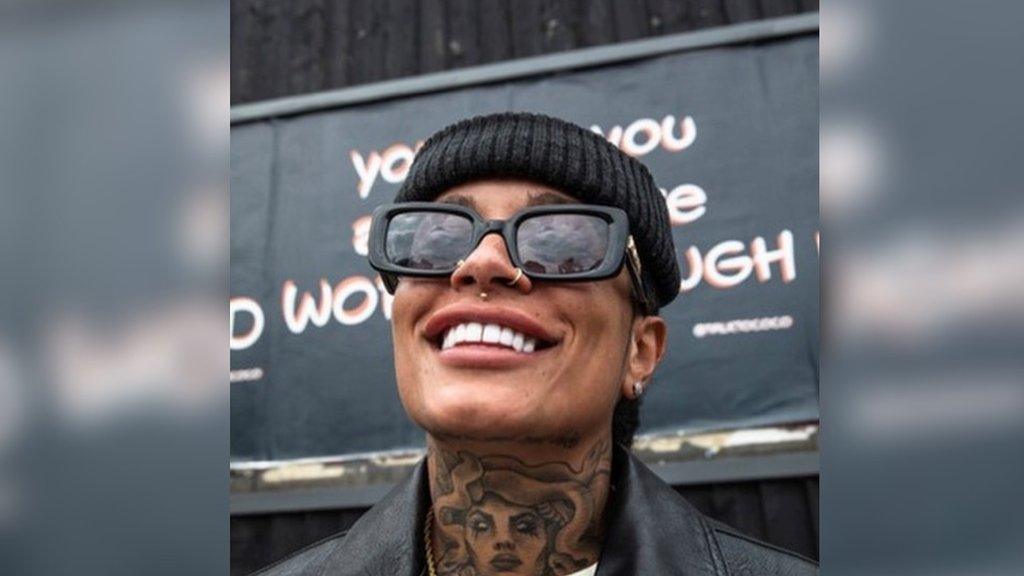
- Published23 July 2021
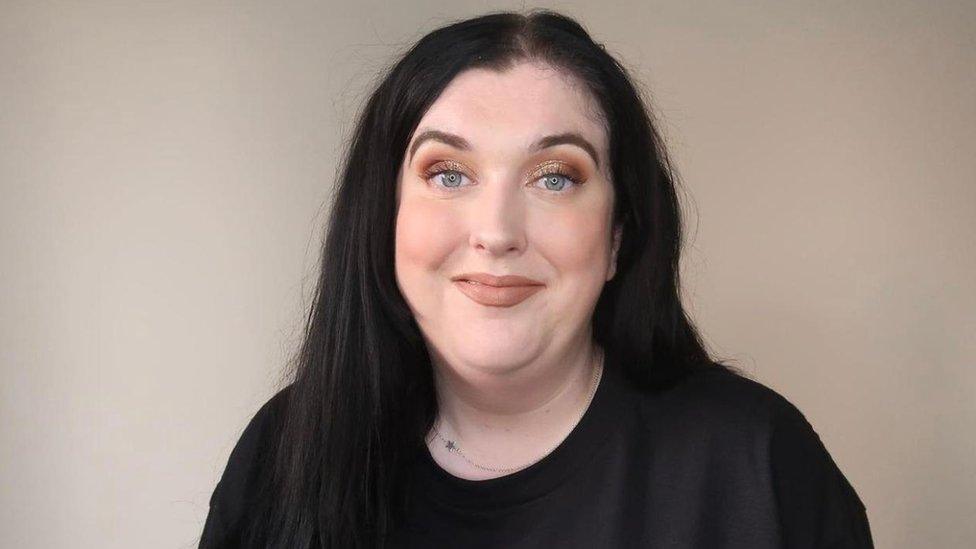
- Published8 February 2021
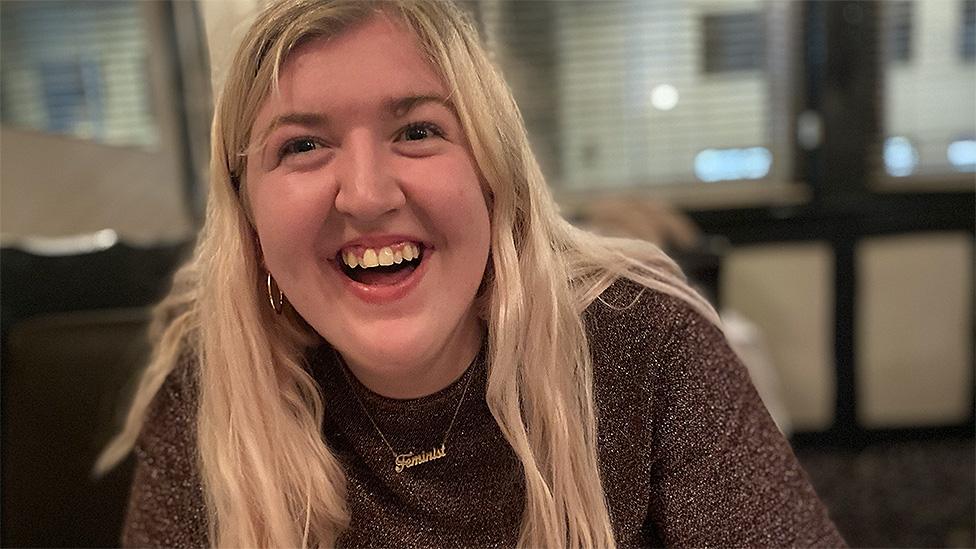
- Published15 November 2021
